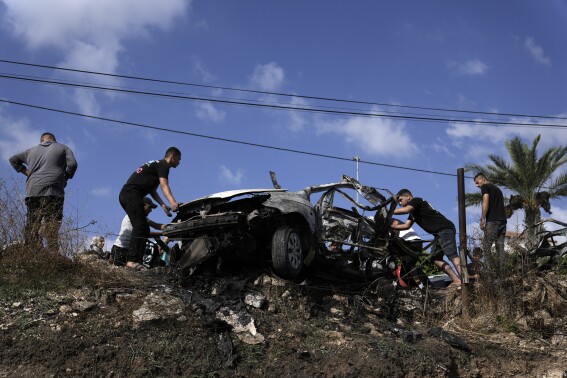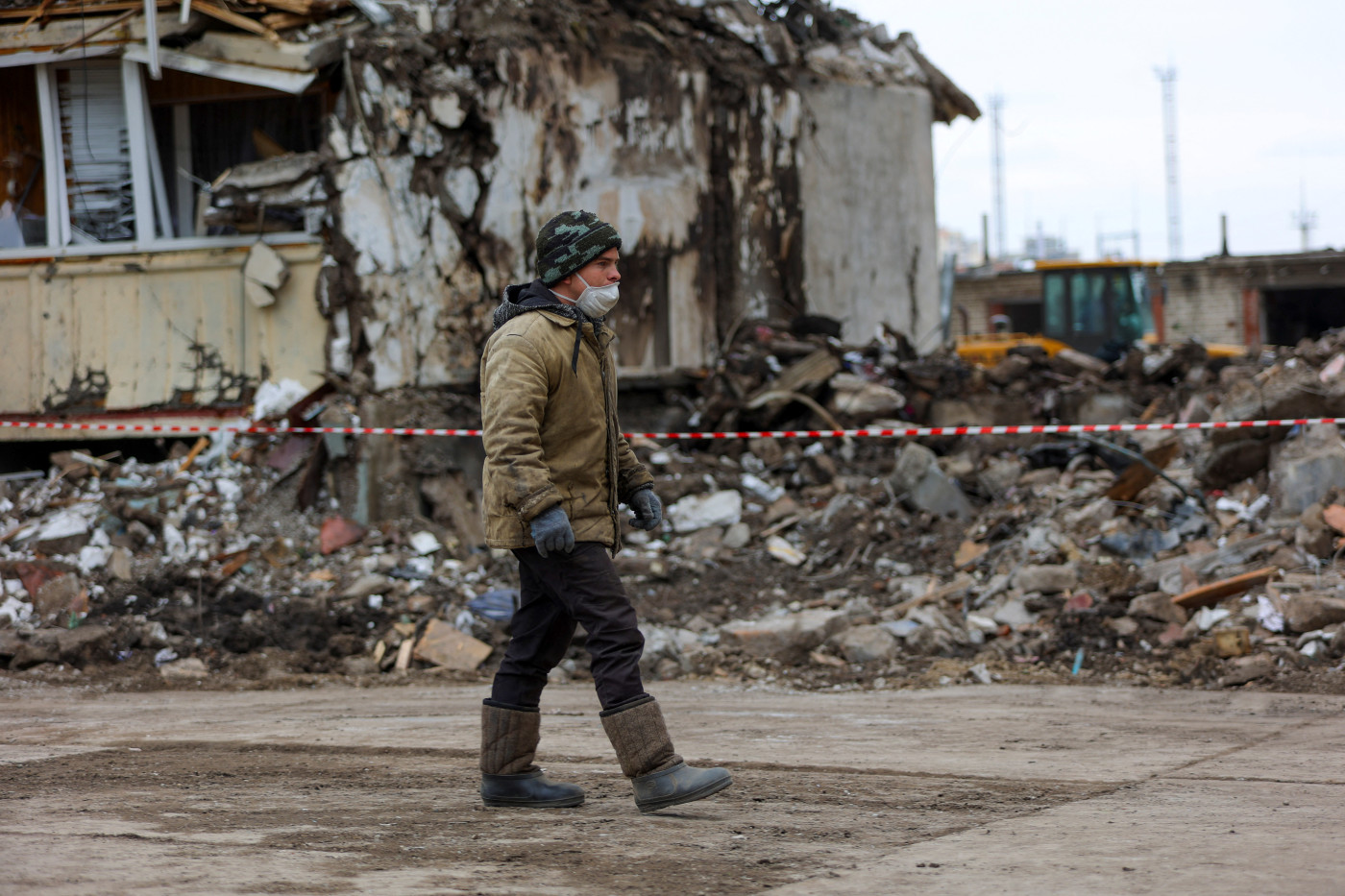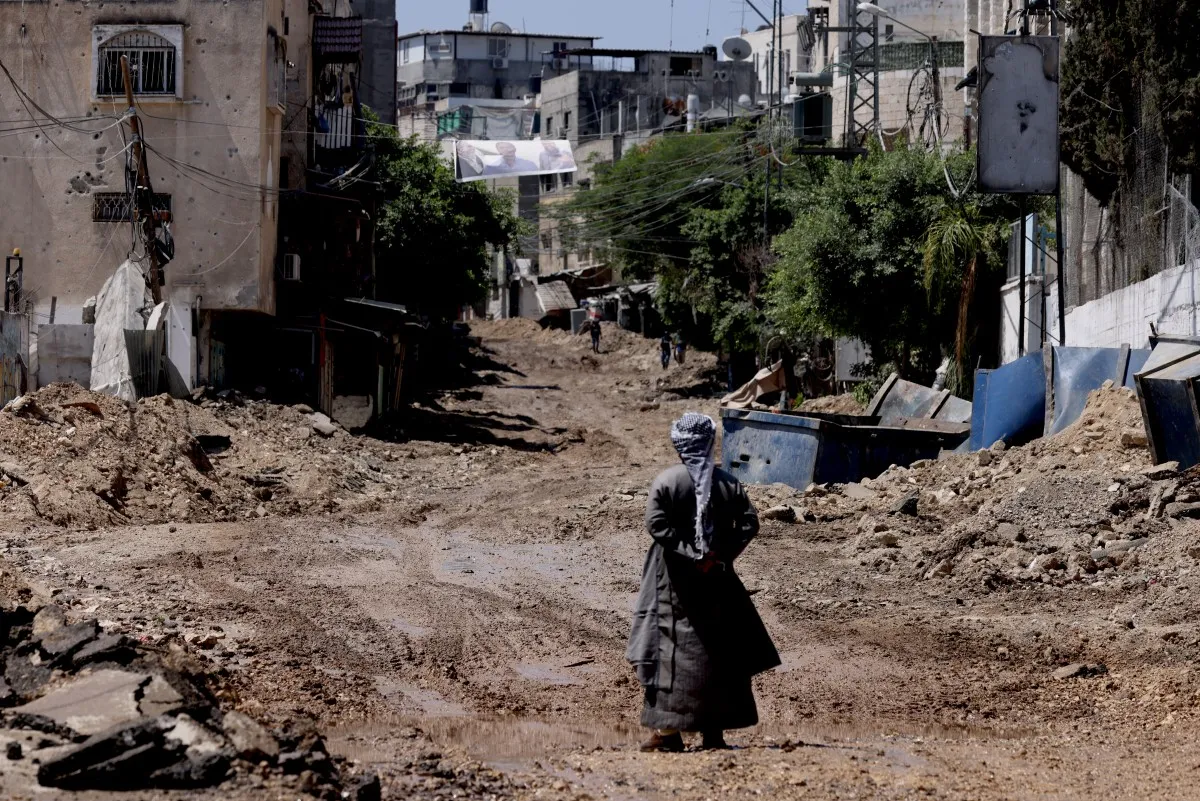Russian Neutral Athlete Reveals Olympic Village Reaction
A Russian trampolinist competing as a neutral athlete at the Paris Olympics has claimed "no one in the Olympic village has been against us" despite the controversy over their participation.
The remark was made on Friday by Anzhela Bladtceva according to the Reuters news agency. Due to Moscow's 2022 invasion of Ukraine athletes from Russia and Belarus, which supported President Putin's military operation, but did not take part directly in the fighting, were banned from competing under their own colors.
In total 32 Russian and Belarusian athletes are competing as "individual neutral athletes," having been vetted by the International Olympic Committee (IOC) to ensure they have not publicly supported the war in Ukraine.
According to Bladtceva, the controversy hasn't resulted in Russian athletes facing hostility from other competitors. She said: "No one in the Olympic village has been against us, no one has said anything bad. Everyone was glad we still came even though there are only 15 of us [Russian athletes]. If I get upset, we still won't be getting our flag anyways." Bladtceva, who is from St. Petersburg, finished fifth in the women's trampoline final on Friday.
Newsweek contacted the International Olympic Committee and the Russian Olympic Committee for comment on Saturday outside of usual business hours.
Speaking to Newsweek, Chris Gear, a lawyer who was on the organizing committee for the 2010 Winter Olympic Games in Vancouver, said that allowing Russian athletes to compete despite their national Olympic committee having been banned was unprecedented.
He said: "The IOC has suspended several countries from Olympic participation in the history of the Games, but to my knowledge Russia is the only one where athletes have been permitted to compete notwithstanding the ban of their country.
"In 2018, Russian athletes were allowed to compete as 'Olympic Athletes from Russia' and in 2020 and 2022, the athletes competed under the banner 'Russian Olympic Committee.' As 'Individual Neutral Athletes' (INA) in the Paris Games, their connection to Russia has been even further removed."
Previous bans on Russian athletes taking part in summer and Winter Olympics came after a state sponsored doping program was uncovered by investigators.
Gear continued: "The controversial part of the IOC ruling is that Russian and Belarusian athletes were not universally invited to compete under the INA banner—instead, only athletes who passed a security screening that demonstrated they did not support the war or have affiliations with military groups were invited to attend the Games. Any policy that allows for discretion is bound to create challenging interpretation questions."
According to Gear the wider sporting world has broadly supported the IOC's decision regarding the participation of Russian and Belarusian competitors, although many do have concerns.
He said: "I believe most sport practitioners are supportive of the IOC ruling, but somewhat worried about the precedent it creates. Most agree that individual athletes should not have to pay the price for the conduct, positions and aggressions of their country's government.
"Athletes work hard for what is often a once-in-a-lifetime opportunity to compete at the highest level, and robbing them of that opportunity to penalize a government is not in keeping with the goals of Olympism. Banning a bad actor country from having any presence or political involvement in the Games, while still allowing its athletes to perform, is a fair solution."
Professor Bob Barney, a sports historian who has written widely about the Olympics and used to teach at Western University in Ontario, told Newsweek he had "no doubt" American athletes could "lose out placing in their specific competitions involving Russian or Belarusian athletes."
He compared this to the 1980 Olympics in Moscow which was boycotted by some Western Olympic associations in response to the Soviet invasion of Afghanistan, boosting eastern bloc athletes. The Soviet Union and a number of its allies also boycotted the 1984 Olympics in Los Angeles, which improved the performance of Western nations.
Barney said the wider sporting world's reaction to the ICC decision was "along a spectrum" and included contrasting criticism that Russian athletes were being treated both too harshly and leniently. He added: "My own take on this is, that in the end, the IOC stuck to its fundamental dictum of 'fair play' for the athlete in both his/her actual competitions and their qualified right to participate."
Professor Stephen Wenn, an expert in the Olympic movement at Canada's Wilfried Laurier University, noted there is significant precedent for neutral athletes taking part at The Games.
He said: "The IOC has permitted Independent athletes, perhaps most notably the (former) Yugoslavian athletes in the early 1990s. There are less well-known or reported situations tied to Indian and Kuwaiti athletes in the recent past. Of course, Russian participation has seen various iterations since 2016 (Olympic Athlete from Russia, Russian Olympic Committee, due to doping issues."
Speaking to Newsweek, Kathy Nalywajko, president of the Ukrainian Institute of America, condemned the decision to allow some Russian and Belarusian athletes to compete in Paris as neutrals.
She said: "What Russia and its satellite puppet Belarus have done to Ukraine and Ukrainian sports constitutes a multitude of war crimes. The notion that a Russian or Belarusian athlete can compete at the Olympic Games as an individual and not as a representative of his or her country is naive, disingenuous and dangerous.
"While the IOC made attempts to vet athletes' loyalties, which athlete wouldn't say that they don't support the war for a chance to compete? Elite athletics are closely tied to the government and military in Russia. Simplistic rebranding and superficial vetting of athletes from banned countries does not diminish their loyalties."
Disclaimer: The copyright of this article belongs to the original author. Reposting this article is solely for the purpose of information dissemination and does not constitute any investment advice. If there is any infringement, please contact us immediately. We will make corrections or deletions as necessary. Thank you.


